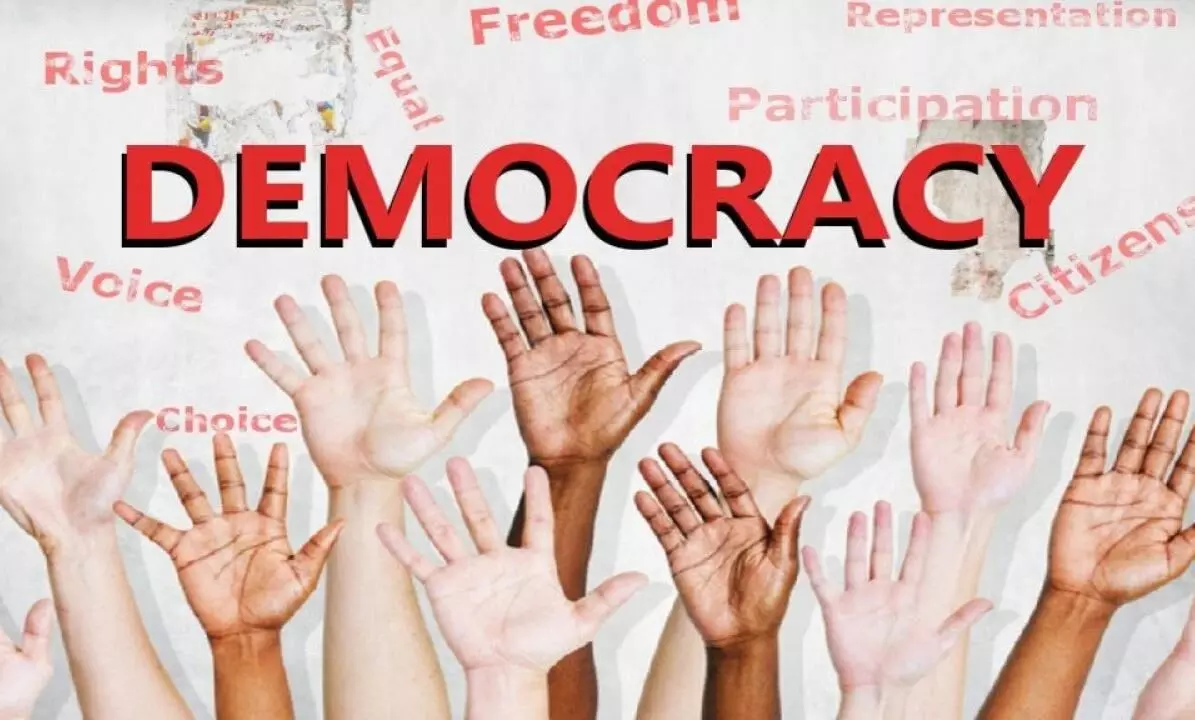
A victory for democracy
text_fieldsKerala chief minister Pinarayi Vijayan has informed that the government has decided not to enforce the ordinance the state government recently introduced amending the Police Act in the name of preventing cyber attacks and defamation. It is evident that the government was forced to make such a U-turn, within 24 hours of the issue of the ordinance, under the stiff opposition by most sections of the people, including the ruling alliance constituents, and even the national leadership of the chief minister's own party, the CPM. Pinarayi Vijayan in a social media post said, "With the announcement of the amendment, different views arose from different quarters. Concerns were expressed by those who supported LDF and those who stood for protection of democracy. In this situation, it's not intended to amend the law." He also clarified that further action on the law will come only after a wider debate in the legislature where the government will table the bill. Although one can construe this decision as a virtual cancellation or withdrawal of the ordinance, technically the amendment is to be deemed to be in force, until any document to the contrary comes into force. In other words, we are still at the point of the sword of the ordinance capable of gagging the media and the civil society. For that reason, some reservation accompanies the welcome being accorded to the chief minister's statement; this can be seen merely as a temporary backtracking in the background of widespread public protest and the imminent local body elections. At the same time, the civil society deserves kudos for having drilled into the state government a lesson from democracy through creative protests.
The state cabinet decided on October 21 to issue an ordinance adding Section 118A in Police Act in order to stop crimes via social media. The law provides for them to be punished with imprisonment of upto three years or fine upto Rs 10,000 or both. Given that the police in the state has not been successful in effectively preventing cyber attacks and libel and in concluding complaints that it receives, any legislative move to offer protection to women, children and transgenders in cyber space, should have been welcomed in the society. But because of the unbridled powers the police will derive from the amendment ordinance, apprehensions arose even within the ruling alliance about the possible threat to media freedom and civil rights – which is by means out of place. For, the attempted amendment is only a rehash of two laws that the Supreme Court had struck down in 2015, Section 66 of IT Act and Section 118-D of Kerala Police Act, on the grounds that they restrict the citizen's freedom of opinion. Any one can allege libel against another; even without a complaint, the police can file case on its own; and an approval of a magistrate or a warrant is not required for arrest. Nothing more is required to silence the media and the new social media too. There is also a glaring paradox that there is no mention about the purpose for which the law was purported to be promulgated. Still more curious is the fact that the legislation comes through the back door under the government of a party that had persistently argued inside and outside the house for repeal of IT Act Sec 66 and Police Act Sec 118-D.
Pinarayi Vijayan who recommended this ordinance to the governor, is a member of the CPM polit bureau, which had in a press release issued on Nov 12, severely criticised the government's interference in cyber space. That statement was in the context of, and opposing the Centre's move to bring OTT platforms under the government's control and to introduce censorship. The resolution also constitutes a political declaration. The Pinarayi government, therefore is moving in total dissonance with that decision. But this is not the first instance of such incompatibility of the two layers of CPM. Many decisions of Kerala's home ministry since it came to power reflect such deviation. When it comes to UAPA, the CPM had carried out numerous protest programmes against the draconian law at the national level, but all the same Kerala has been witness to many instances of the state CPM having a different take which had come in for vigorous debate. The state also had numerous police excesses where its machinery sunk to being the tongue and baton of the sangh parivar. Things have come to such a pass that the state's police force is now adopting the 'police methodology' which the sangh parivar implements at the national level. The ill-advised Section 118-A is akin to the press gagging law introduced by the BJP government in Rajasthan in 2017. And that was intended to check news about ministers, people's representatives and government officials. But, if the then Rajasthan chief minister Vasundhare Raje had at least shown the political courtesy of tabling the bill in the state assembly, here everything has been left to the police rationale. If such police rationale tightens its grip on democracy, it will open the doors to fascism or Stalinism. Therefore, let the last minute rethinking that dawned on the chief minister be a firm step towards vibrant democracy.























